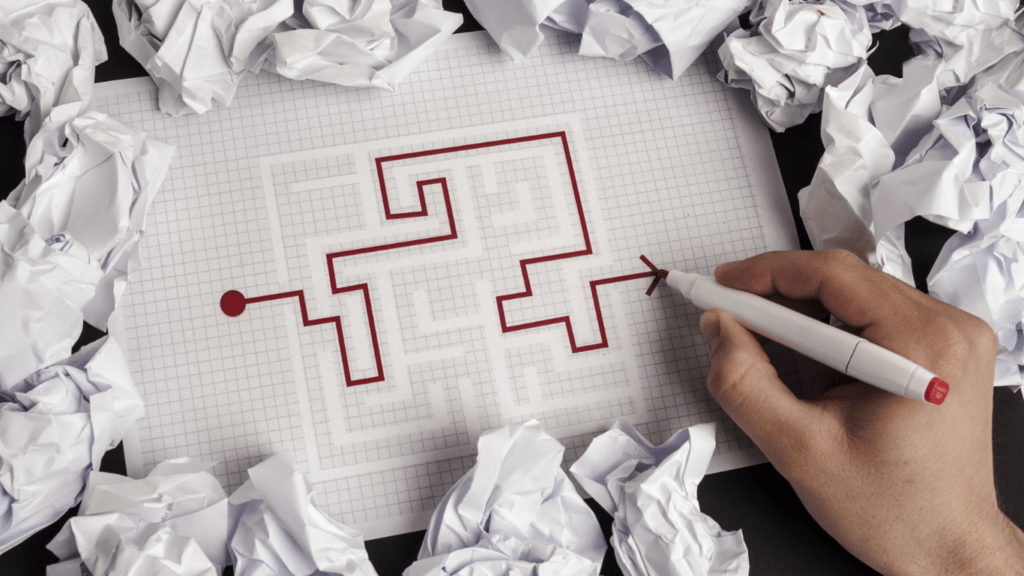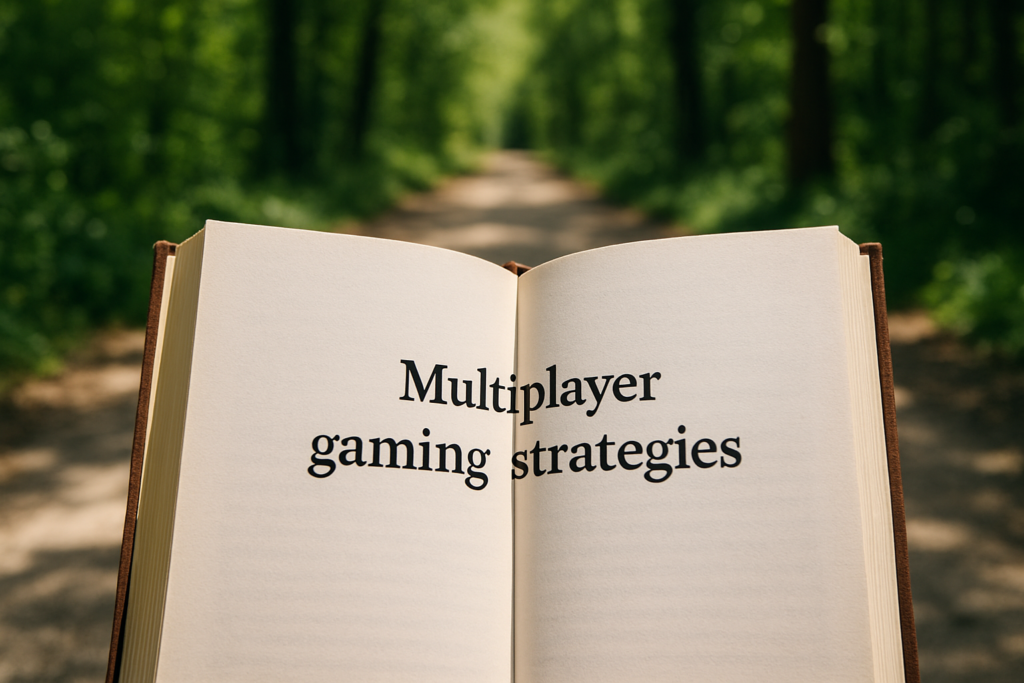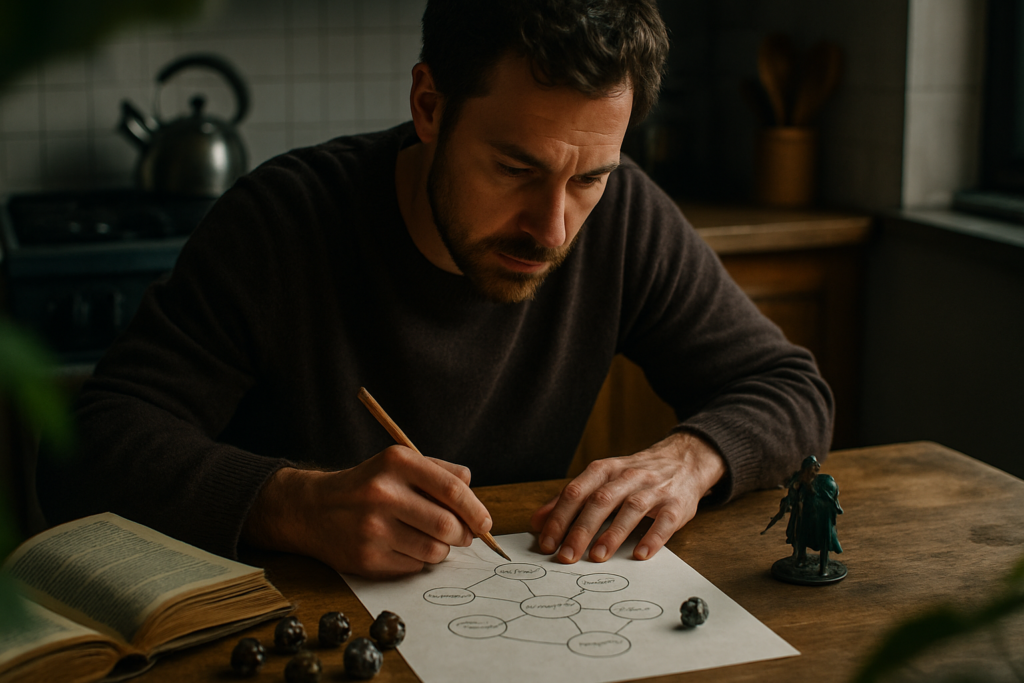Are you ready to level up your puzzle game skills? Dive into the world of “Puzzle Games: Strategies for Solving Complex Challenges” with me. From unraveling intricate mysteries to cracking mind-bending riddles, I’ll guide you through the strategies that will help you conquer even the most daunting puzzles.
In this article, I’ll share my insights on tackling complex challenges in puzzle games. Whether you’re a novice looking to enhance your problem-solving abilities or a seasoned player seeking fresh tactics, I’ve got you covered. Get ready to sharpen your mental acuity, think outside the box, and unravel the secrets to mastering puzzle games like a pro.
Evolution of Puzzle Games
In examining the evolution of puzzle games, it’s intriguing to trace their journey from simple beginnings to the sophisticated challenges faced by players today. This progression highlights how the genre has evolved to engage and captivate audiences across generations.
Early Beginnings to Modern Complexity
Exploring the early roots of puzzle games reveals a fascinating shift from traditional pen-and-paper puzzles to digital iterations that offer intricate gameplay mechanics and immersive experiences. The evolution showcases a gradual progression in complexity, motivating players to sharpen their analytical skills while enjoying the evolving challenges presented by these games.
The Impact of Technology on Game Design
The influence of technology on puzzle game design cannot be overstated, as advancements continue to shape and redefine the possibilities within the genre. From basic 2D graphics to stunning 3D environments, technological innovations have elevated puzzle games to new heights, providing players with visually stunning and intellectually stimulating experiences that push the boundaries of traditional gameplay.
Understanding Puzzle Game Mechanics
Puzzle games come in various types, each with its unique mechanics that challenge players to think critically and solve problems creatively. Understanding these game mechanics is essential for mastering different puzzle genres and excelling in gameplay. Let’s explore the types of puzzles and common themes and objectives found in these engaging games.
Types of Puzzles
- Logic Puzzles
These puzzles require deductive reasoning and logical thinking to solve. Players must analyze clues and apply reasoning to deduce the correct solution. - Spatial Awareness Puzzles
These puzzles test players’ spatial reasoning skills by requiring them to manipulate objects or navigate through intricate spaces. - Pattern Recognition Puzzles
Players must identify patterns or sequences within the puzzle to progress, challenging their ability to recognize and predict patterns. - Riddles and Brain Teasers
These puzzles often involve wordplay, lateral thinking, or tricky questions that require creative problem-solving skills. - Escape Room
A popular theme where players must solve a series of puzzles to escape a locked room or scenario within a set time limit. - Match-3
The objective is to match three or more similar items in a row, column, or pattern to clear them from the board and achieve specific goals. - Maze Navigation
Players navigate through mazes or labyrinths, overcoming obstacles and finding the correct path to reach the goal. - Physics-Based Puzzles
These puzzles rely on realistic physics simulations, requiring players to understand and manipulate virtual physics to solve challenges.
Understanding the mechanics and nuances of these puzzle types can sharpen your problem-solving skills and provide a rewarding gaming experience.
Strategies for Solving Complex Challenges

When delving into puzzle games, one key aspect to excel at is analytical thinking combined with pattern recognition. It’s crucial to analyze the problem at hand thoroughly and identify any recurring patterns within the puzzles. By honing these skills, I can decipher complex challenges more efficiently.
- Analytical Thinking and Pattern Recognition
In puzzle games, analytical thinking is my ally when faced with intricate challenges. By breaking down the problem into smaller parts and discerning patterns, I enhance my problem-solving abilities. Recognizing patterns allows me to apply previously acquired knowledge to similar situations, accelerating my progress in the game. - Creative Approaches and Alternative Strategies
Exploring creative approaches and alternative strategies is essential in tackling complex puzzles. When conventional methods fall short, thinking outside the box helps me discover unorthodox solutions. By experimenting with different techniques and embracing a creative mindset, I can overcome even the most daunting obstacles in puzzle games.
Case Studies of Popular Puzzle Games
I’ll delve into case studies of renowned puzzle games that offer a fusion of narrative elements with intricate challenges, providing players with intellectually stimulating experiences.
Portal Series: Fusion of Narrative and Challenge
In the Portal series, players navigate through a series of puzzle rooms using a portal gun, which creates inter-spatial portals to solve challenges. The game seamlessly blends intricate puzzles with a captivating narrative, immersing players in a unique gaming experience that tests their spatial awareness and problem-solving skills.
The Witness: Environmental and Visual Puzzles
The Witness sets players on a mysterious island filled with environmental puzzles that rely on observation and logical reasoning. By exploring the island’s diverse landscapes and uncovering hidden clues, players must decipher intricate visual puzzles that challenge their perception and attention to detail.
The Psychological Benefits of Playing Puzzle Games
Playing puzzle games offers various psychological benefits that can positively impact cognitive development, problem-solving skills, stress relief, and leisure activities. I’ll delve into these benefits in the subsequent sections.
Cognitive Development and Problem-Solving Skills
Engaging in puzzle games enhances cognitive abilities by requiring players to analyze situations, think critically, and strategize solutions. These games stimulate the brain, improving memory, concentration, and logical reasoning. By tackling complex challenges and deciphering intricate puzzles, players can enhance their problem-solving skills and adapt to new strategies efficiently.
Stress Relief and Leisure
Playing puzzle games serves as a form of stress relief and leisure activity for many individuals. These games provide a mental escape from daily pressures, allowing players to unwind and relax in a challenging yet enjoyable environment. The immersive nature of puzzle games can divert attention from stressful situations, promoting mindfulness and a sense of accomplishment. This leisurely activity not only entertains but also boosts mood and overall well-being.



